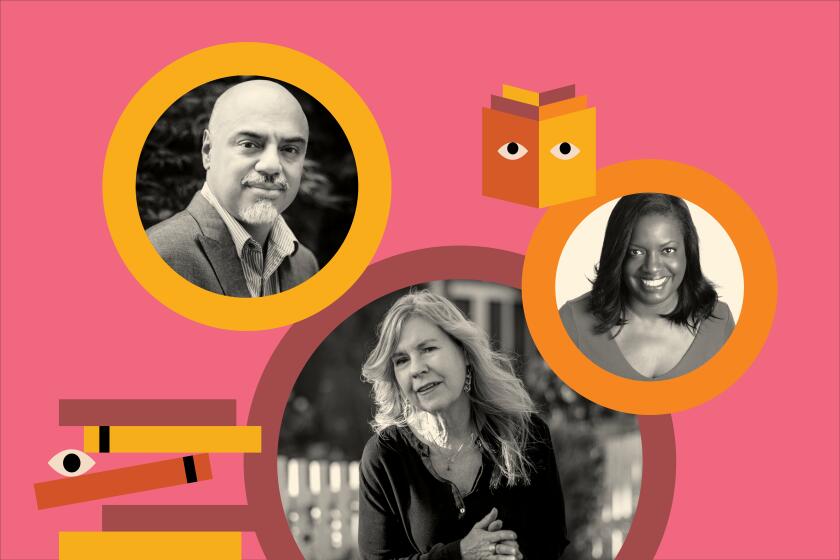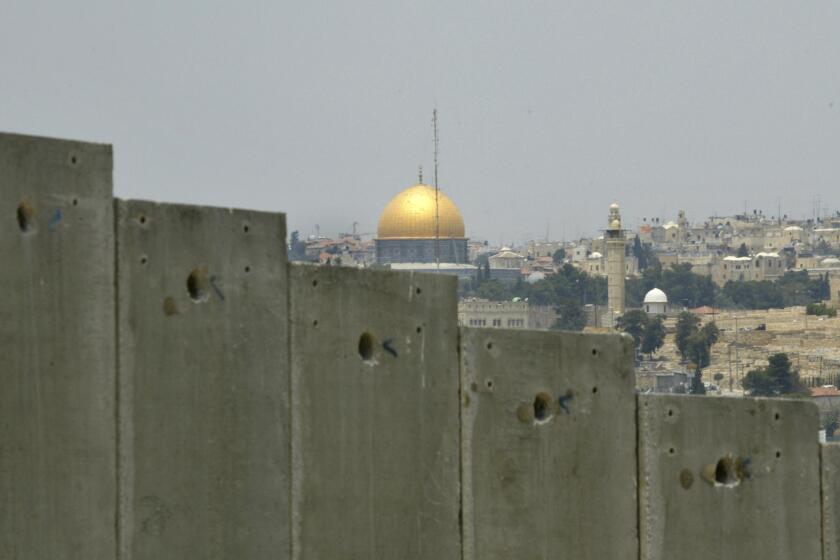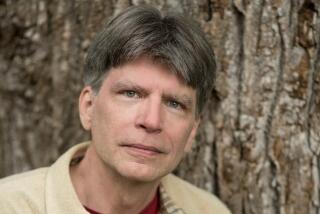Review: Apocalypse on the L.A. River? The novel ‘City of Orange’ blends humor and dread
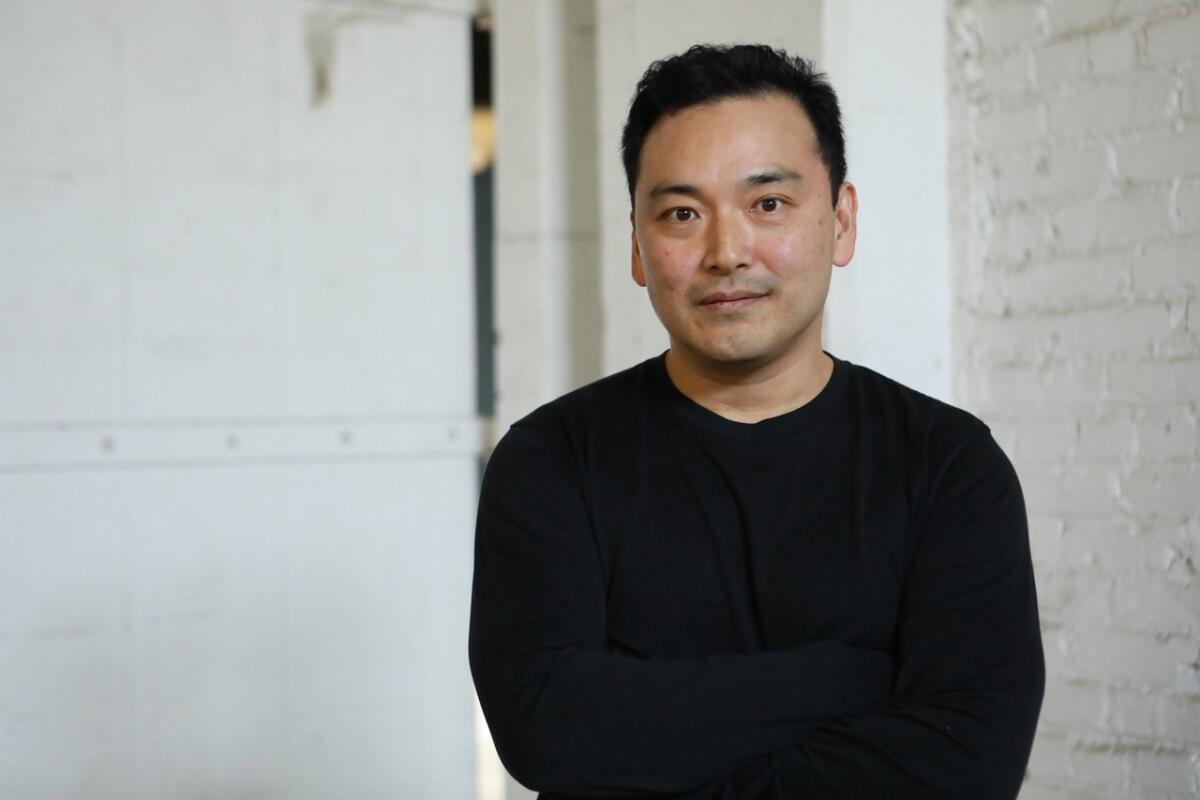
On the Shelf
City of Orange
By David Yoon
Putnam: 352 pages, $27
If you buy books linked on our site, The Times may earn a commission from Bookshop.org, whose fees support independent bookstores.
Imagine waking up with a head injury, with no memory of who or where you are but instead a pervasive feeling of dread. What would you do? What questions would you ask? Maybe more crucially, how scared would you be of discovering the answers? This is the situation facing the unnamed protagonist of “City of Orange,” the second novel for adults by David Yoon.
While Yoon’s bestselling young adult books were romances full of teenage hijinks, his first adult novel, “Version Zero,” was a fast-paced thriller about a ragtag group trying to bring down the internet. “City of Orange” is also concerned with a kind of collapse — civilization as we know it — but unlike his other books, the new novel narrows its focus to the internal experience of one man waking up at the end of the world.
The unfortunate protagonist (unnamed to the reader and himself) starts with an inventory of what little he knows: He’s alive — although later he’ll wonder about this — and he’s a man, and he lives in California. He knows he should check the back of his head for signs of trauma. His senses all seem to be working. He is in a concrete channel that appears to be a dried-up man-made river. He thinks his name begins with an A. What he does know, quite clearly, is that the world has ended: “He can’t recall any details. All he knows is that every last bit of it — societies and schools and money — has been done with. Wiped away, like his memory.”
The first quarter of the book is concerned with the protagonist’s slow climb up the hierarchy of needs, beginning with meticulous attempts to keep himself safe and alive. He figures out how to open a faucet in the concrete channel. He finds a shelter left behind by someone else. He begins tentatively to explore what might lie outside of the channel but is quickly spooked when his first foray results in the discovery of a corpse and a near-death experience of his own.
Authors including Hector Tobar, Marie Lu, Jervey Tervalon, Xochitl-Julisa Bermejo and Matthew Specktor consider what makes an L.A. or O.C. writer.
Yoon manages to imbue these small activities with dramatic tension that works in two very different ways. First, there is the horror in recognizing looming existential threats: death, if he can’t find water and food, but also the nearly unimaginable fact that everything he loves and knows is gone and never, ever coming back. Second, and rather unexpectedly, the sequences are sprinkled with gallows humor. When he finds a wine opener and tries to use it to open the faucet, he thinks about how “Thousands of years from now, his preserved skeleton will be on display in a museum suspended by invisible force fields. They’ll totally have force fields by then. In his bony hand will rest a primitive artifact of unclear purpose.”
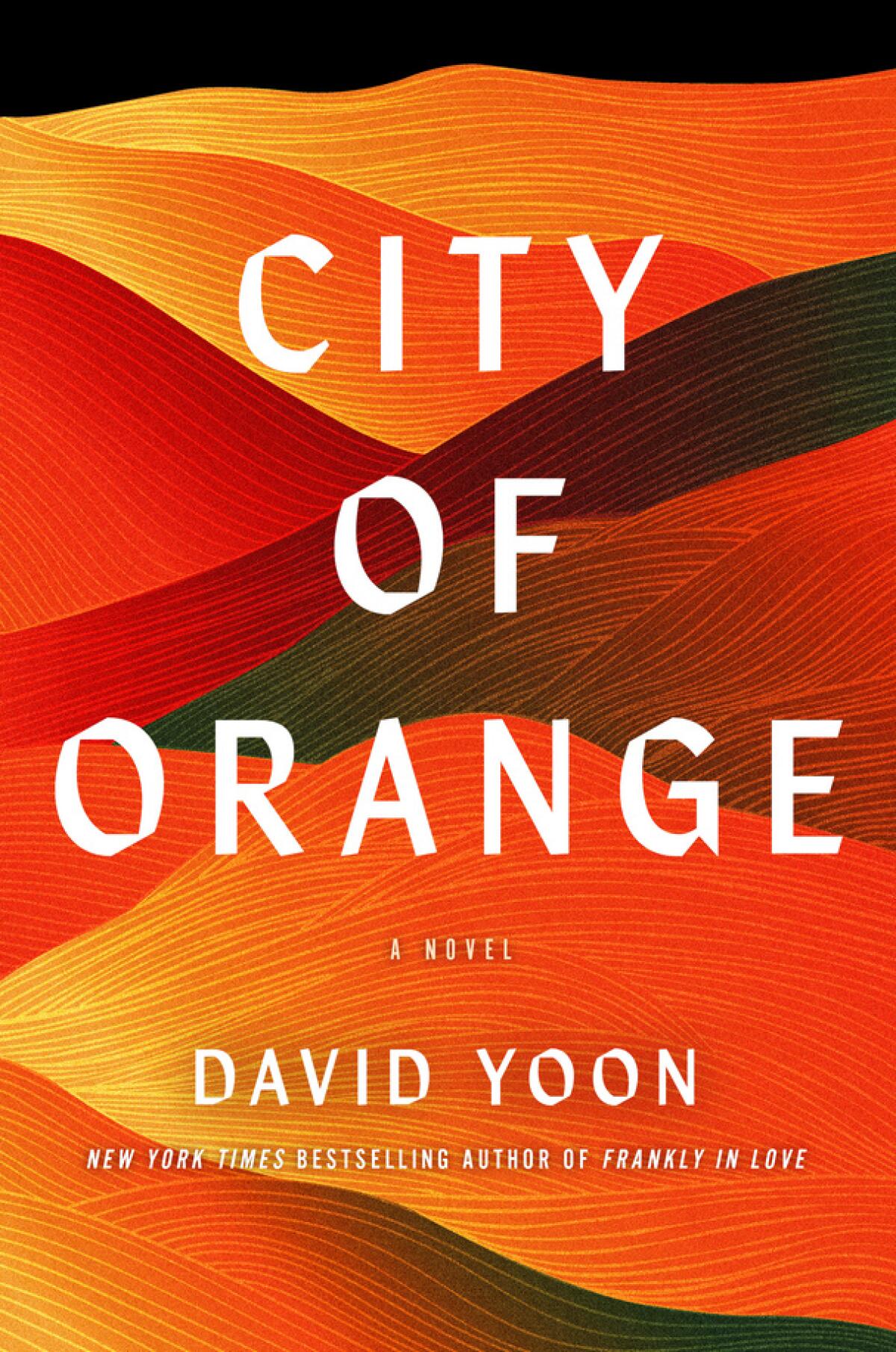
Interwoven with the protagonist’s struggles are memories that begin to pop up unbidden. He knows suddenly that he has, or had, a wife and child, as well as a best friend. But where he can remember more and more of his friend Byron — an amateur survivalist whose name the protagonist recalls far earlier than his own — his wife’s face continues to draw a blank. This seems like self-preservation: He can’t bear to remember too much about her or his child or the world as it once was, before the apocalypse, before the collapse of civilization that happened … how?
The question powers much of what follows. The novel is divided into six parts and, curiously, the title page that comes before “Part I: The Survivor” reads “California, AD 2010.” What are we dealing with here, readers might ask — an alternate history? Some version of purgatory or hell? A simulated reality? Is 2010 the last year the protagonist remembers? Slowly, he begins to ask himself the same questions: Maybe he’s in some kind of puzzle and there are right and wrong ways to behave inside of it; maybe God is testing him; or maybe he’s simply going mad, talking to crows and to a god he’s not certain he even believes in.
In contrast with most novels trading in survival or apocalypse, Yoon’s protagonist is able to draw on our world’s pop culture. This puts “City of Orange” in league with genre spoofs like the “Scream” franchise or “Zombieland,” which play with their characters’ prior knowledge of the genre they’re participating in. The levity in “City of Orange” often stems from both subtle and overt references to survival-narrative tropes, including shoutouts to the Tom Hanks film “Cast Away” and Daniel Defoe’s “Robinson Crusoe.” But Yoon’s novel is no spoof; the survivor’s panic is too palpable for that.
Emily St. John Mandel, Susan Orlean, T.C Boyle, Marlon James and others share apocalypse reading picks.
The first big turn in the novel comes when he meets an old man whose communication skills are limited; he seems able to say only the word “berries.” Here, at least, in the absence of real answers, is evidence that there are more humans out there. The second big turn is the appearance of a curious boy. To say anything more would be to spoil the novel terribly.
Although the protagonist’s most aching memories involve his wife and daughter, whom he assumes he’ll never see again, I confess I was drawn even more to his friendship with Byron, partly for Yoon’s depiction of a relaxed intimacy between two straight men. Once on a camping trip, the protagonist recalls, Byron was intent on teaching him about “the local flora and fauna, what’s edible, what’s poisonous, what’s good for wounds et alia” — an endeavor that keeps falling apart because Byron’s would-be student isn’t taking it at all seriously. The scene ends hilariously when it becomes clear that they’re not in some remote wilderness but rather in Griffith Park, and Byron is worried that the car they parked on the street a hundred steps away might get a ticket.
“City of Orange” is a fast-paced read, and Yoon’s ability to lighten the mood keeps it from becoming as dread-inducing as some end-of-the-world novels can be. While it does have a big twist some readers will see coming, the novel works in part because obfuscation of that twist isn’t the book’s main concern. That honor belongs to the eternal question, relevant to both the apocalypse and everyday life, of how we’re supposed to go on when living seems impossible in the face of all that has been lost.
Masad is a books and culture critic and author of “All My Mother’s Lovers.”
An Israel-born critic was wary of Rebecca Sacks’ kaleidoscopic debut, ‘City of a Thousand Gates.’ Why she wound up loving it.
More to Read
Sign up for our Book Club newsletter
Get the latest news, events and more from the Los Angeles Times Book Club, and help us get L.A. reading and talking.
You may occasionally receive promotional content from the Los Angeles Times.
